In October 2015, Epicenter’s Pathways to Innovation Program held a workshop at the University of Nevada, Las Vegas exploring the vital relationship between institutions and their off-campus ecosystems.
Faculty take part in a teamwork exercise at the Pathways to Innovation Program at the University of Nevada, Las Vegas, in October 2015. Photo credit Laurie Moore.
How does a university connect with its off-campus ecosystem? This was the focus of Epicenter’s Pathways to Innovation Program workshop, held October 7-9, 2015, in Las Vegas.
Pathways teams used University of Nevada, Las Vegas (UNLV) and the city of Las Vegas as a live case study for understanding and responding to this question. On October 7, the group toured the Innevation Center, a co-working space powered by data center Switch, and explored the Downtown Project, a revitalized area of old downtown Las Vegas. On the morning of October 8, the group visited a number of research labs and machine shops on the UNLV campus and learned about opportunities including drone and quadcopter research and classes that connected engineering with theater tech.
Discussion and activities that followed the tours focused on the importance of a strong connection between a school and its regional ecosystem. The Pathways community believes that this relationship will increase opportunities for faculty and students to engage with I&E and ensure that the changes they make on campus will last for years to come.
Faculty also heard from speakers including Gina O'Connell from Local Motors on innovation in the auto industry and Iain Kerr from Montclair State University on creativity in the classroom. Participants worked with one another on topics including partnering with campus economic development advocates, identifying resources for new initiatives, tech transfer and forging connections outside a metro area.
The meeting also served as a celebration for the 12 institutional teams that began the two-year Pathways program in January 2014. The teams were treated to an Oscars-style ceremony and gave short “acceptance” speeches highlighting their achievements in the program.
The many successful activities completed or in-progress include:
- California Polytechnic State University, San Luis Obispo: new tenure track faculty with joint responsibilities in engineering and business, the updated Coleman Fellows program supporting I&E activity in all six colleges, and an interdisciplinary senior capstone course
- The Cooper Union for the Advancement of Science and Art: the Invention Factory student program, a Lean LaunchPad class, and an expanded summer intensive program for high school students
- Howard University: a redesigned Introduction to Engineering class to include I&E, the HowU Innovate Lab, two startup courses open to interdisciplinary teams, and the HowU Innovate initiative
- Michigan Technological University: a new I&E center and a pilot maker space with plans for a campus-wide maker space
- New Mexico State University: the Aggie Innovation Space hub for student engagement in ideation and entrepreneurial activities and three renovated classrooms for active learning
- Tennessee Technological University: the iTTU Eagleworks Competition innovation competition, a university-wide iMakerspace, and the new I&E course LLP@TTU
- Texas A&M University: Aggies Invent event series, Pop-Up Class program, and U-Ignite engineering initiative for students to showcase their creative ideas to improve the world
- University of California, Merced: the presence of entrepreneurship curriculum in required engineering coursework, a venture lab, and the framework for a "Leadership for Innovation" minor
- University of Massachusetts Lowell: a makerspace for engineering students, an annual engineering prototype competition for all majors, and the Health Science and Engineering DifferenceMaker program
- University of Nevada, Las Vegas: a nationally recognized capstone experience, a campus-wide I&E team, and a consolidated and improved manufacturing and design space for I&E
- University of Pittsburgh: a space for low resolution prototyping and design, two courses on “Art of Making,” an entrepreneurship living learning community for incoming freshmen, and an entrepreneurship bootcamp for upper division students
- University of Wisconsin-Milwaukee: new Lubar Center for Entrepreneurship, Entrepreneurship Experience freshman course, the Kulwicki Innovation Pit Stop space, and the Innovation Pathways Workshop Series
The Pathways to Innovation Program, run by Epicenter, is designed to help institutions fully incorporating innovation and entrepreneurship into undergraduate engineering education. Program leaders will announce a third cohort of participating schools in mid-October. Learn more about the Pathways program at epicenter.stanford.edu/pathways-to-innovation.



